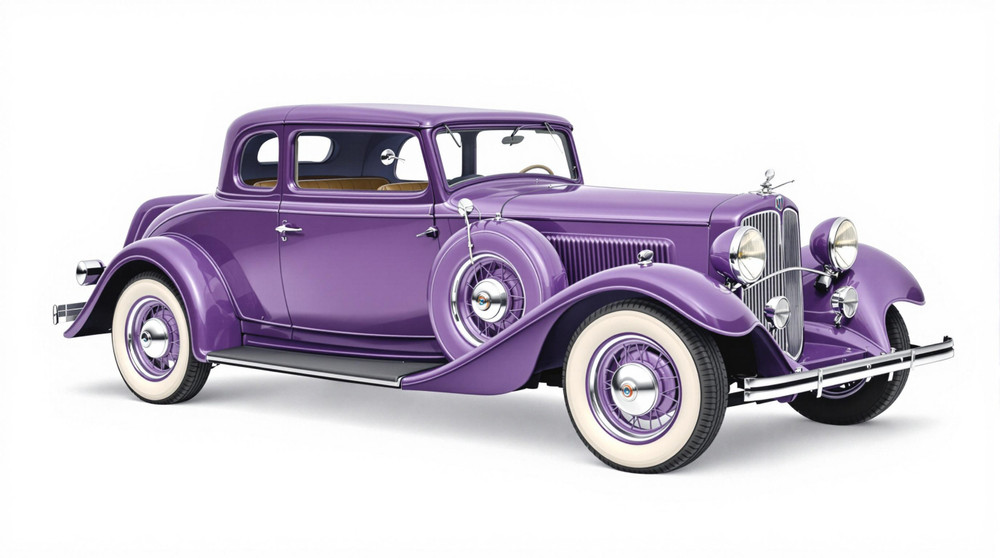Image of 1933 Auburn Model 12-165, Note: These illustrations use artistic license and may differ from actual historical models.
Performance Metrics
Fundamental Metrics
Emotional Appeal
MMP Rating
| Engine Specifications | |
|---|---|
| Engine: | Lycoming V12 |
| Displacement: | 391 cubic inches (6.4 Liters) |
| Horsepower: | 160 HP |
| Torque: | Estimated at 320 lb-ft |
| Compression Ratio: | 6.2:1 |
| Ignition System: | Distributor and coil |
| Cooling System: | Liquid-cooled |
| Performance Specifications | |
| 0-60 Time: | Estimated at 15 seconds |
| 1/4 Mile Time: | Not available |
| Top Speed: | 100 mph |
| Transmission and Drive | |
| Drive Type: | Rear-wheel drive |
| Transmission Type: | 3-speed manual |
| Fuel and Efficiency | |
| Fuel System Type: | Carburetor |
| MPG: | Estimated at 10-12 mpg |
| Dimensions and Brakes | |
| Brakes: | 4-wheel hydraulic drum brakes |
| Wheelbase: | 133 inches |
| Weight: | 4,700 lbs |
Note: Specifications for classic cars are given to the best of our ability, considering the limited and variant data available.
Unveiling the 1933 Auburn Model 12-165: A Symphony of Style and Power
The year 1933 marked a significant chapter in automotive history with the introduction of the Auburn Model 12-165, a vehicle that encapsulated luxury and performance in an era where both were commodities for the fortunate few. Crafted by the Auburn Automobile Company, this masterpiece emerged during a tumultuous period of economic uncertainty, yet it stood as a beacon of American ingenuity and craftsmanship. The Auburn Model 12-165 was not just a car; it was a statement of resilience and elegance, with a lineage that traced back to the early 1900s when brothers Frank and Morris Eckhart founded the company in Auburn, Indiana.
Design and Innovation: A Feast for the Eyes and Senses
The exterior of the Auburn Model 12-165 is nothing short of breathtaking. Its sweeping lines and pronounced fenders spoke a design language that was ahead of its time. The grille, with its distinctive raked angle, became an iconic symbol of the brand's commitment to both aesthetics and aerodynamics. Inside, passengers were treated to an opulent environment where fine leathers and polished woods converged to create an atmosphere of sophistication. The attention to detail extended to the technological marvels of its day, including advanced instrumentation and for some models, a Startix automatic starting system.
Color options for the Auburn ranged from deep, rich hues to vibrant tones that accentuated its striking silhouette. Among these, the two-tone color schemes were particularly popular, enhancing the vehicle's already considerable presence. Body styles varied from roadsters to sedans, but it was perhaps the Phaeton convertible that captured hearts with its blend of open-air freedom and grandeur.
Historical Significance: A Legacy Cast in Chrome and Steel
The Auburn Model 12-165's impact on automotive design cannot be overstated. At a time when most manufacturers were producing vehicles that prioritized function over form, Auburn dared to blend both. It set itself apart with features like its Lycoming V12 engine—a rarity among production cars—and its commitment to offering luxury at a more accessible price point. This approach not only influenced contemporaries but also laid groundwork for future automotive philosophies.
Performance and Handling: The Heartbeat of an Era
Underneath its sculpted hood lay a powerhouse: a 6.4-liter V12 engine propelling the Auburn to impressive speeds for its time. While exact figures vary, top speeds approached 100 mph—a remarkable feat in the '30s—with acceleration that left many competitors trailing in its wake. The ride was smooth yet responsive, with handling that managed to convey both stability and agility despite the vehicle's size. Driving an Auburn Model 12-165 was akin to conducting an orchestra; every movement was met with precision and grace.
Ownership Experience: More Than Just Transportation
The Auburn Model 12-165 served multiple roles—from daily transportation for the well-to-do, to weekend showpiece or even as a contender on the racing circuits. Maintenance required dedication and resources but offered reliability when cared for properly. It wasn't just about getting from point A to B; it was about journeying in style.
Fun Facts: The Auburn Aura
This classic has seen its share of limelight—from gracing silver screens to being coveted by celebrities of the era. While production numbers are not concrete, estimates suggest that fewer than 100 units remain today, making sightings a rare treat indeed. Criticisms were few but often pointed towards its cost during tough economic times—a luxury not everyone could afford.
Collector's Information: An Investment in Automotive Royalty
Today, an Auburn Model 12-165 in pristine condition can command prices well into six figures, with values appreciating over time as collectors vie for these rare pieces of automotive history. Rarity adds to their allure; each surviving example is a treasured artifact from an age where cars were more than mere machines—they were moving art.
Conclusion: The Enduring Legacy of the 1933 Auburn Model 12-165
In closing, the 1933 Auburn Model 12-165 stands as a testament to an era where challenges spurred innovation and luxury knew no bounds. It remains not just a vehicle but a piece of history—a narrative on wheels that continues to captivate enthusiasts and collectors alike.
1933 Auburn Model 12-165 Catalog of Parts
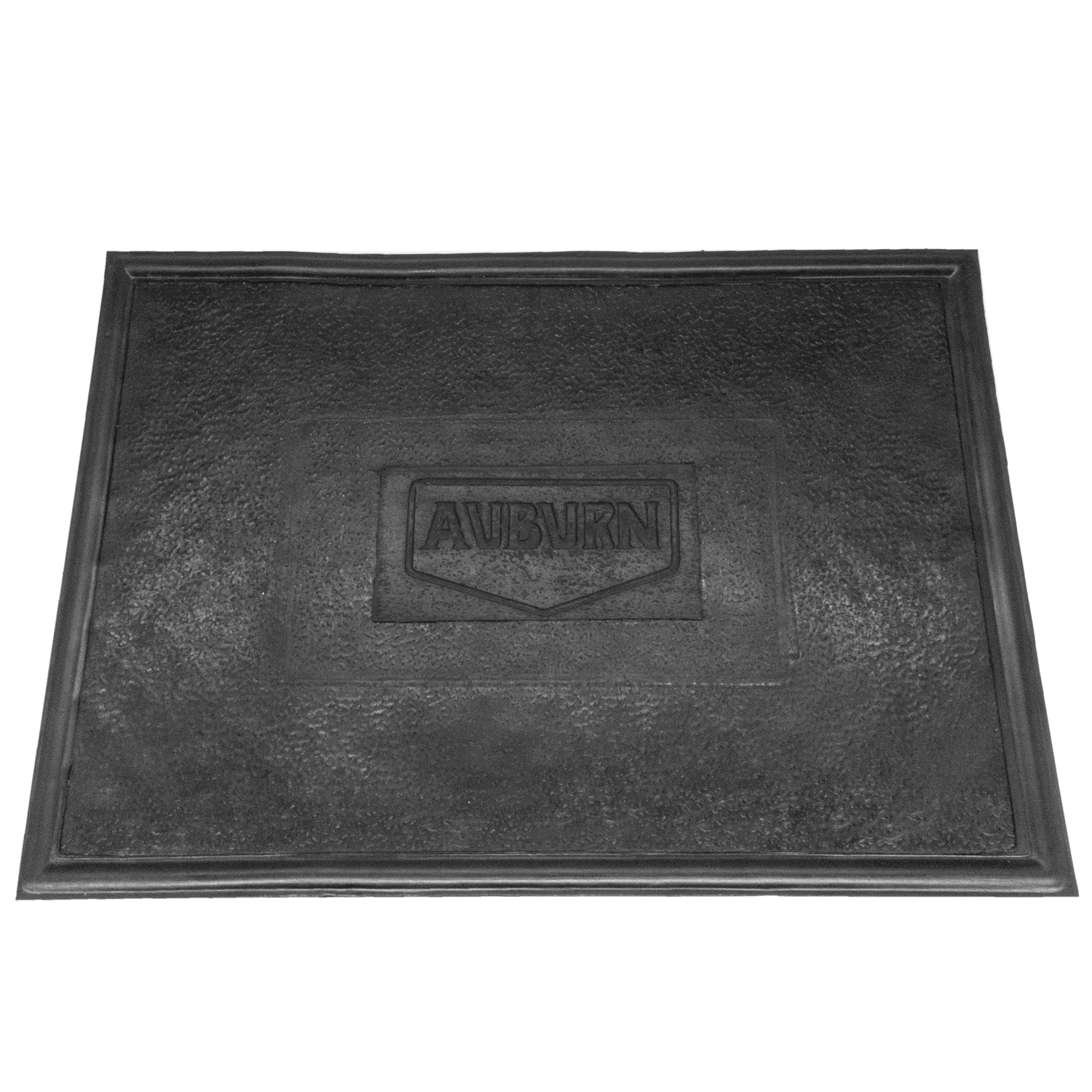 1933 Auburn Model 12-165 Accessory Floor Mat - 12"X17"-AC 14Accessory Floor Mat - made of high quality black rubber with molded original emblem. Also designed to be sewn into new carpets. 12"X17", Each
1933 Auburn Model 12-165 Accessory Floor Mat - 12"X17"-AC 14Accessory Floor Mat - made of high quality black rubber with molded original emblem. Also designed to be sewn into new carpets. 12"X17", Each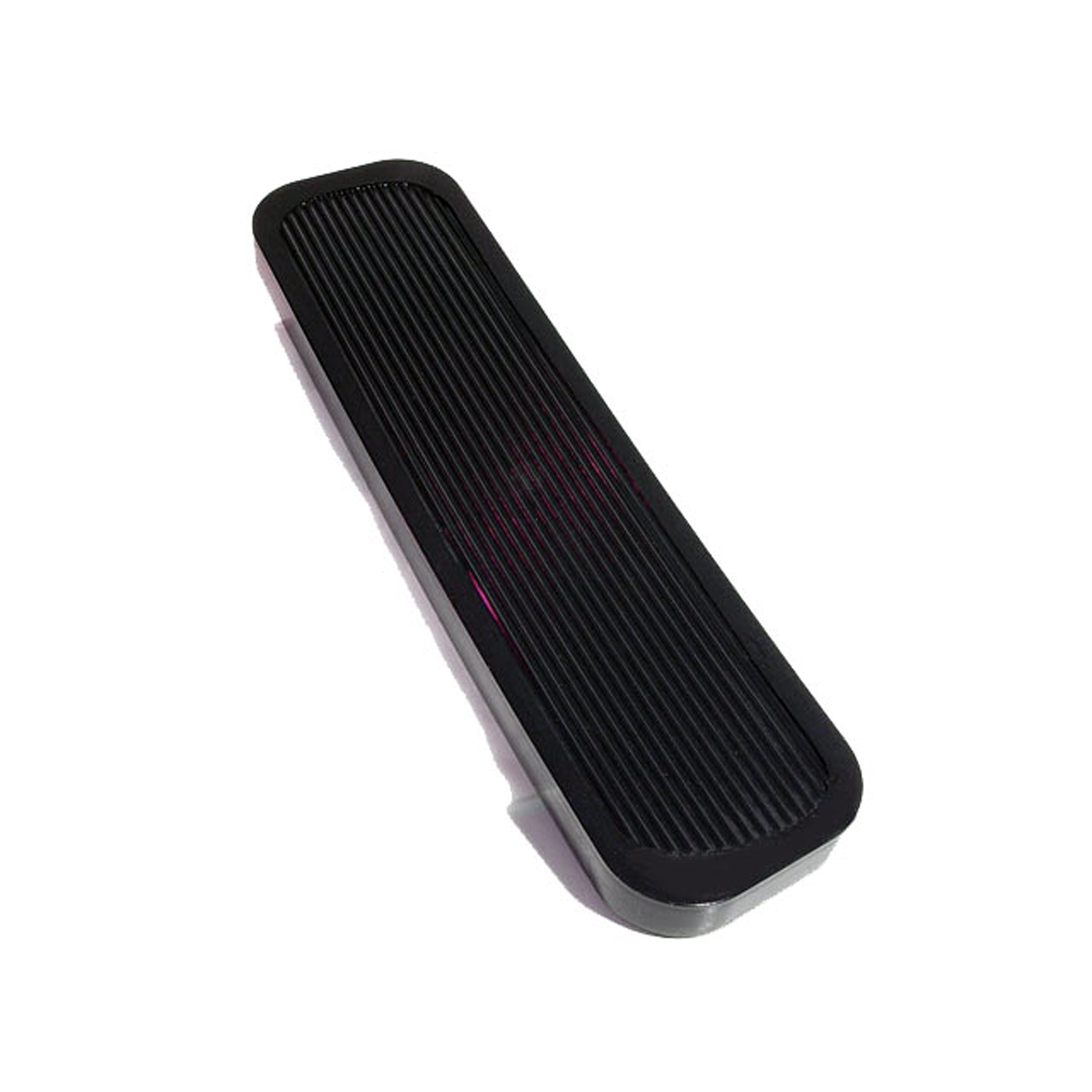 1933 Auburn Model 12-165 Accelerator Pedal Pad, 2-3/8" X 9-1/4", Each-AP 24Accelerator Pedal Pad, 2-3/8" X 9-1/4", Each
1933 Auburn Model 12-165 Accelerator Pedal Pad, 2-3/8" X 9-1/4", Each-AP 24Accelerator Pedal Pad, 2-3/8" X 9-1/4", Each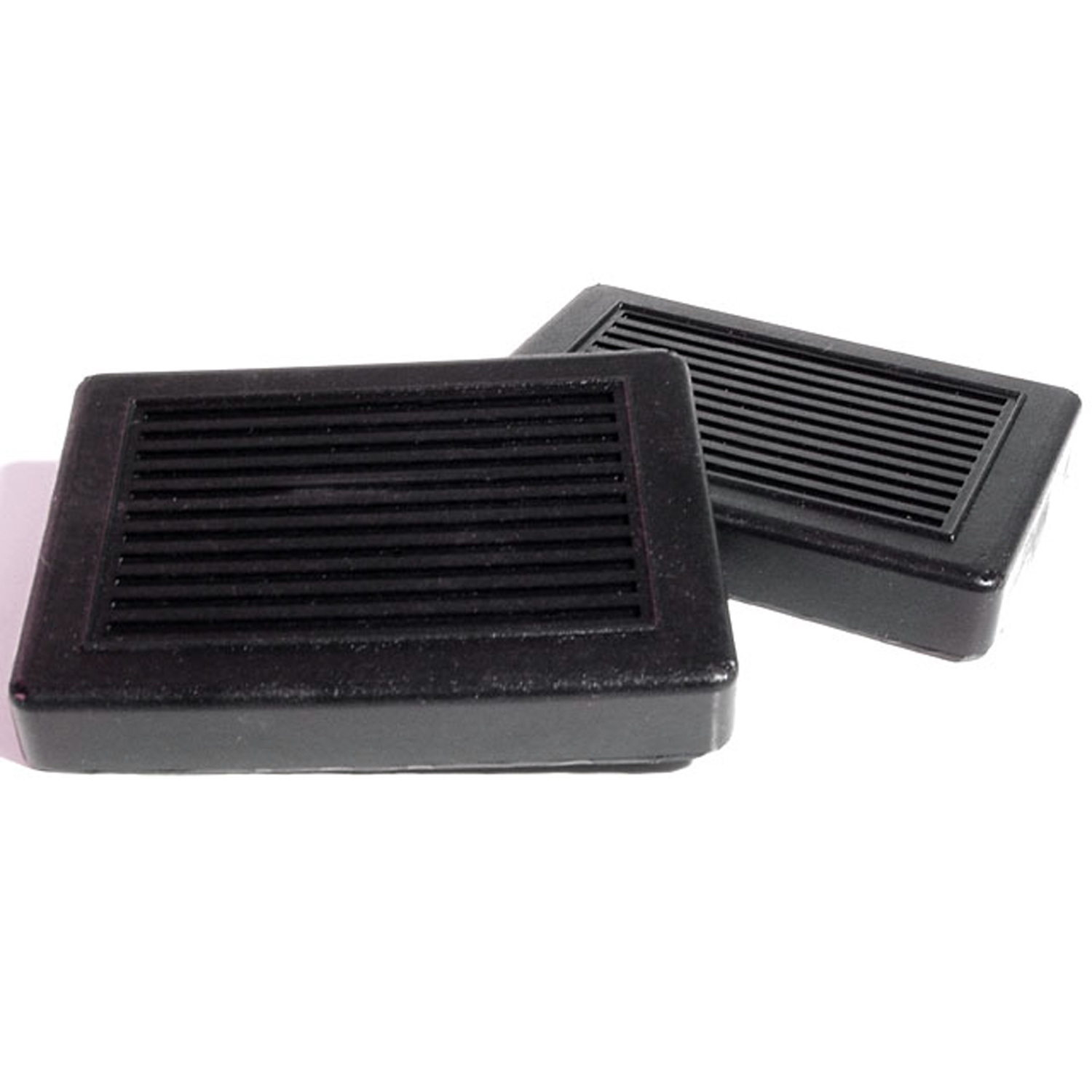 1933 Auburn Model 12-165 Clutch and Brake Pedal Pads. 3" wide X 3-7/8" long. Pair-CB 21Clutch and Brake Pedal Pads. 3" wide X 3-7/8" long. Pair
1933 Auburn Model 12-165 Clutch and Brake Pedal Pads. 3" wide X 3-7/8" long. Pair-CB 21Clutch and Brake Pedal Pads. 3" wide X 3-7/8" long. Pair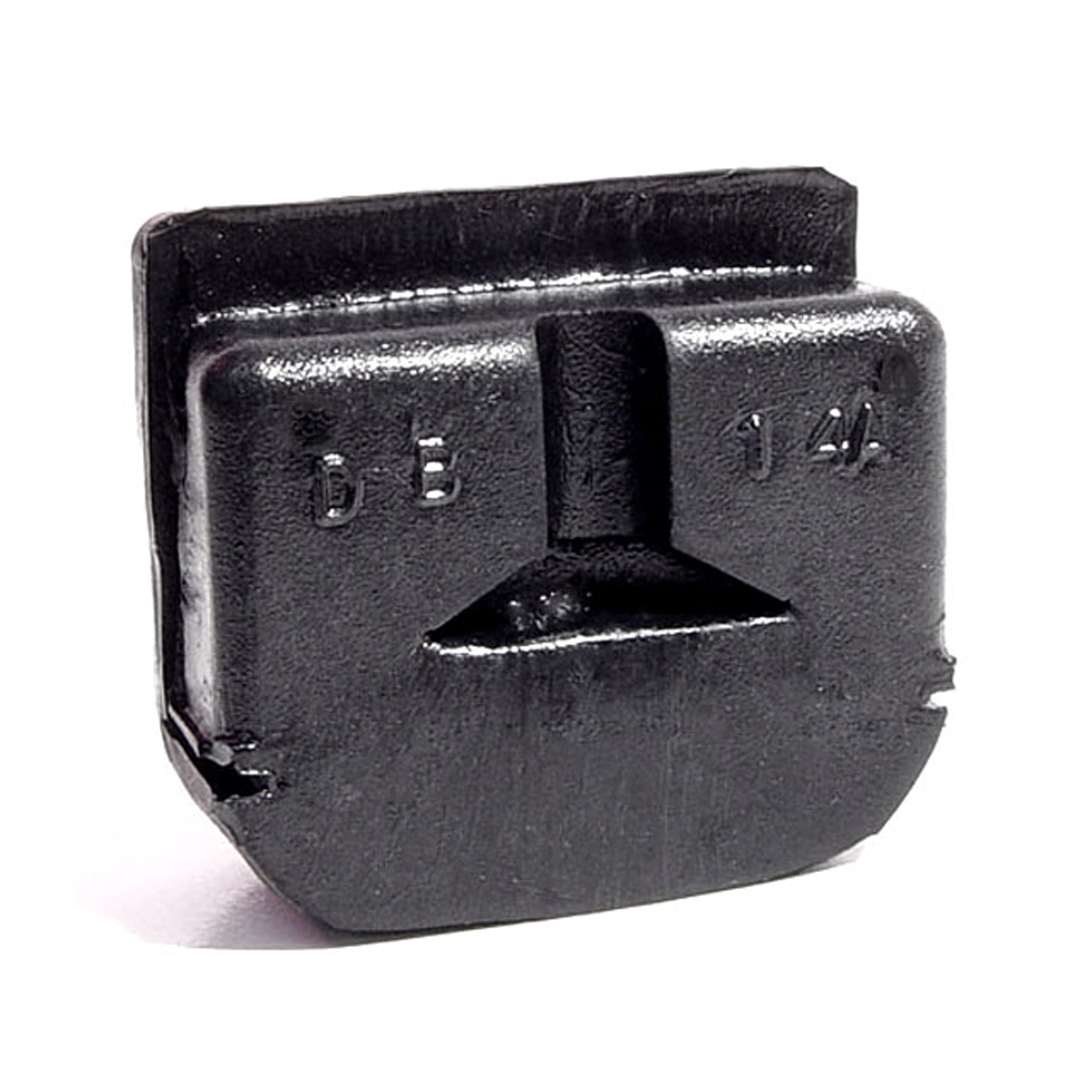 1933 Auburn Model 12-165 Door Bumper. Exact reproduction-DB 14-ADoor Bumper. Exact reproduction. 1-3/16" high X 1-9/16" wide X 9/16" thick. Each
1933 Auburn Model 12-165 Door Bumper. Exact reproduction-DB 14-ADoor Bumper. Exact reproduction. 1-3/16" high X 1-9/16" wide X 9/16" thick. Each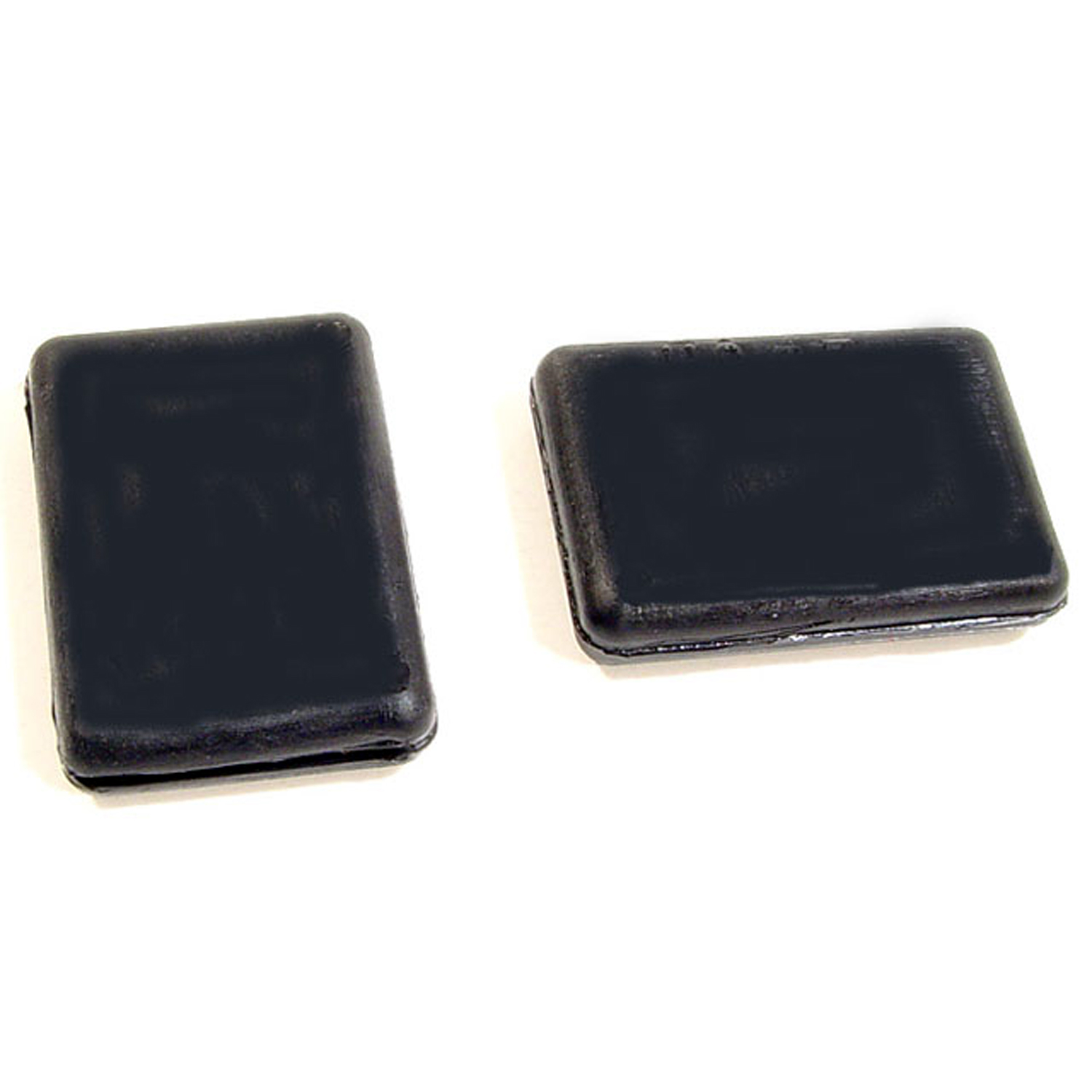 1933 Auburn Model 12-165 Hood Corners. Made of all rubber. No cut-away on back side-HC 27Hood Corners. Made of all rubber. No cut-away on back side. 7/8" X 1-1/4". Pair
1933 Auburn Model 12-165 Hood Corners. Made of all rubber. No cut-away on back side-HC 27Hood Corners. Made of all rubber. No cut-away on back side. 7/8" X 1-1/4". Pair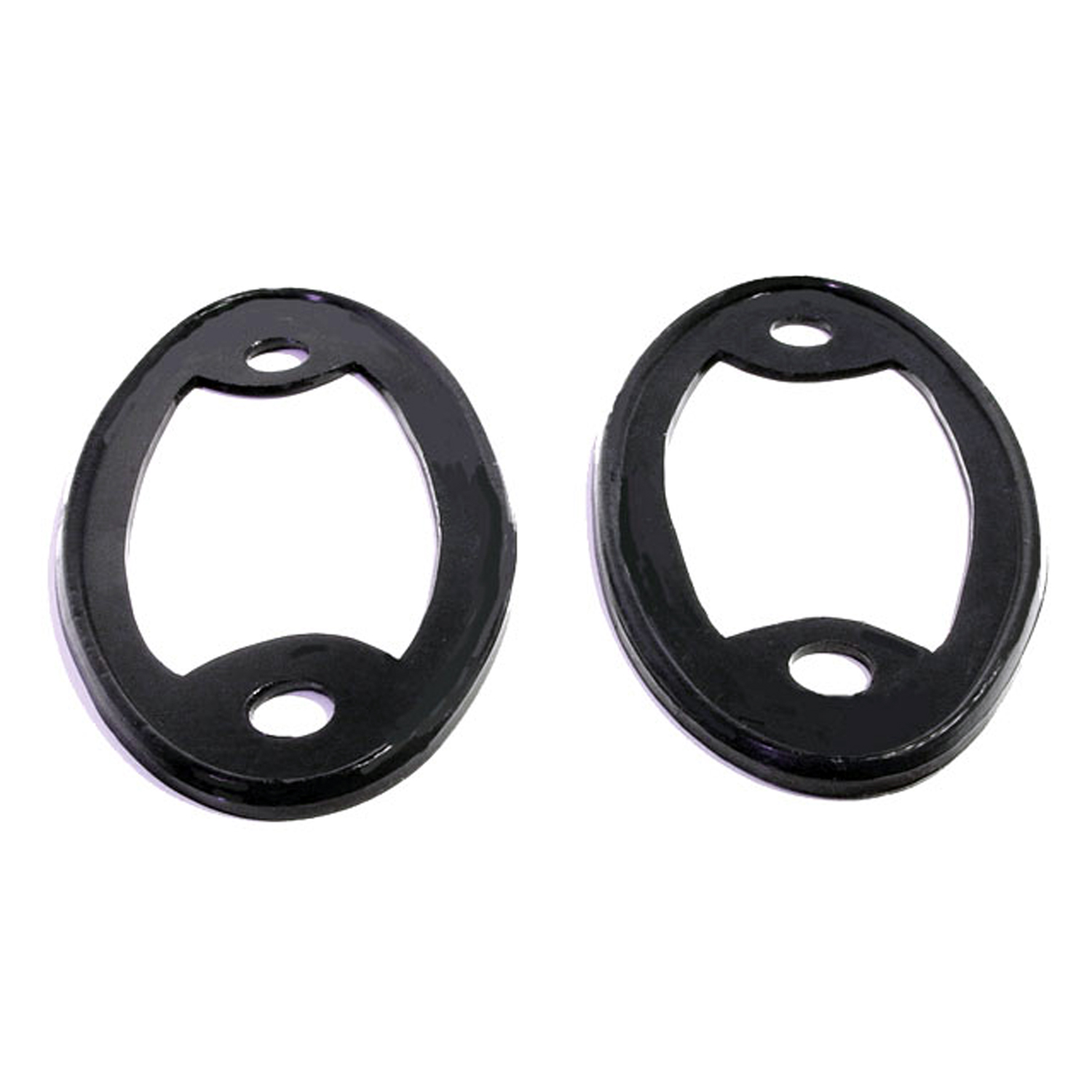 1933 Auburn Model 12-165 Headlight Pads. 2-5/8" wide X 5-1/4" long. Pair-MP 102Headlight Pads. 2-5/8" wide X 5-1/4" long. Pair
1933 Auburn Model 12-165 Headlight Pads. 2-5/8" wide X 5-1/4" long. Pair-MP 102Headlight Pads. 2-5/8" wide X 5-1/4" long. Pair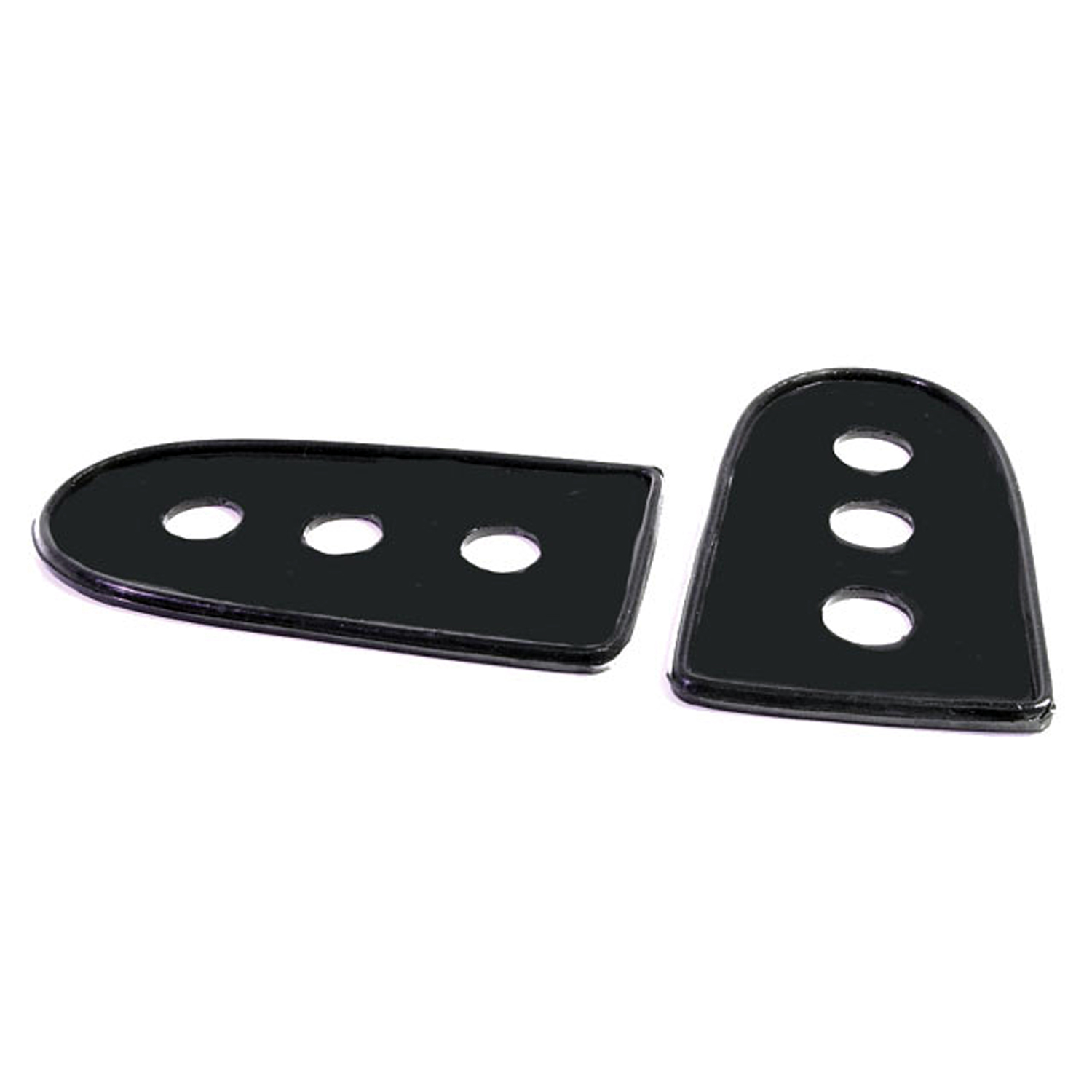 1933 Auburn Model 12-165 Tail-light Pads. 2-1/4" wide X 4" long. Pair-MP 103Tail-light Pads. 2-1/4" wide X 4" long. Pair
1933 Auburn Model 12-165 Tail-light Pads. 2-1/4" wide X 4" long. Pair-MP 103Tail-light Pads. 2-1/4" wide X 4" long. Pair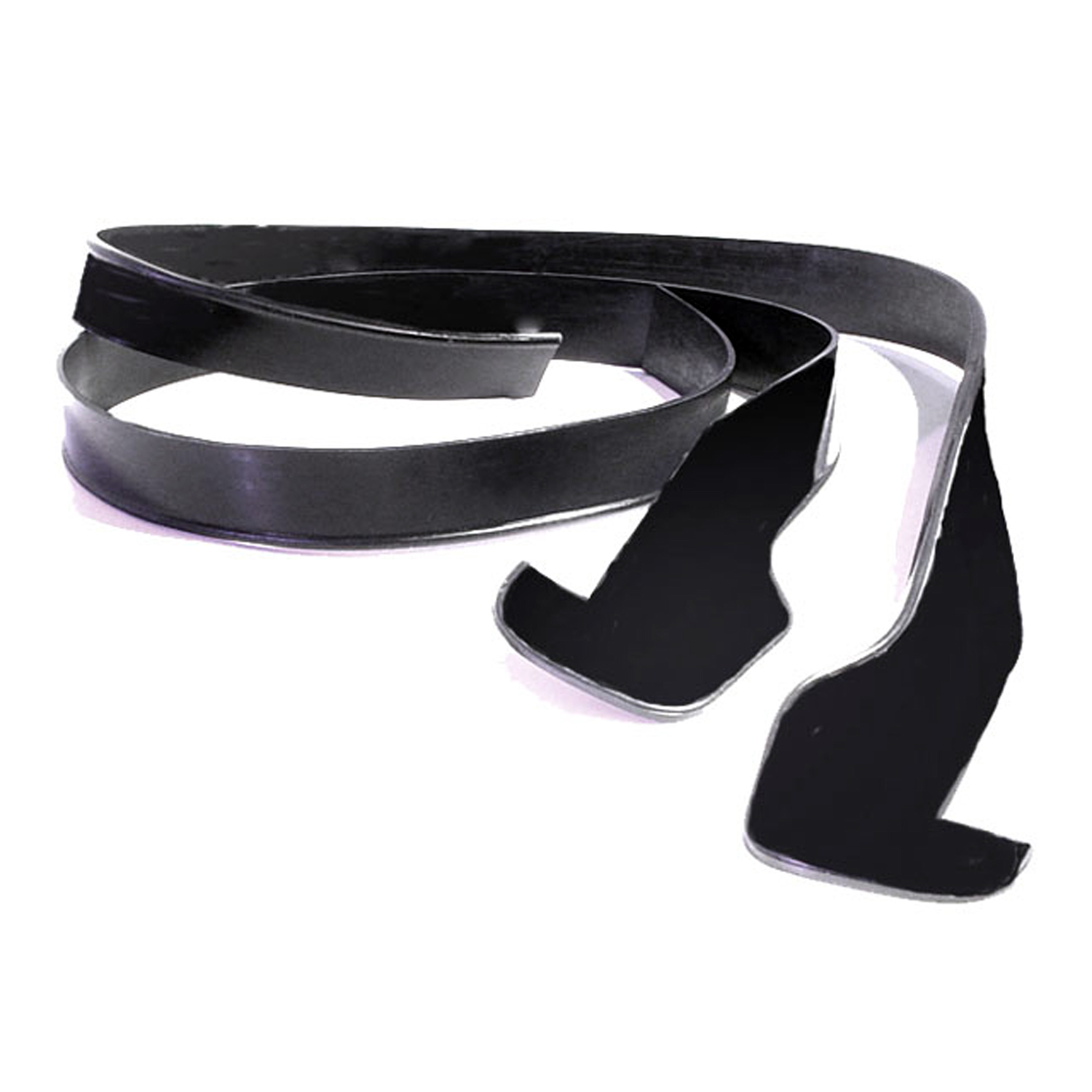 1933 Auburn Model 12-165 Windshield Base Pad. Made in two pieces-MP 106Windshield Base Pad. Made in two pieces. 1-7/8" wide at end X 3' 9-1/2" long. Each
1933 Auburn Model 12-165 Windshield Base Pad. Made in two pieces-MP 106Windshield Base Pad. Made in two pieces. 1-7/8" wide at end X 3' 9-1/2" long. EachWhy Choose Metro?
For over 100 years, Metro Moulded Parts has been the pinnacle of quality in classic car restoration parts. Our commitment to precision and authenticity in every component ensures a perfect fit and an OEM-level appearance.
- Expert Craftsmanship & Quality: Each part is a testament to our dedication to reliability and perfection, crafted from original designs and thoroughly tested.
- Advanced Technology: We use cutting-edge techniques to create flawless, long-lasting parts that surpass others in performance.
- SuperSoft Sponge – The Ultimate Door Seal: Not only are our door seals 30% softer than competitors', but they're also guaranteed to never leak. They effectively reduce wind and road noise, enhancing your classic car's comfort and driving experience.
- Proudly American: Our parts are a product of American craftsmanship, made in the USA with a spirit of excellence and heritage.
- Unrivaled Warranty: We back our products with a 30-year industry-leading warranty, a testament to our confidence in their quality.
Join us in preserving the legacy of classic cars with parts that are crafted for perfection, not just made.

